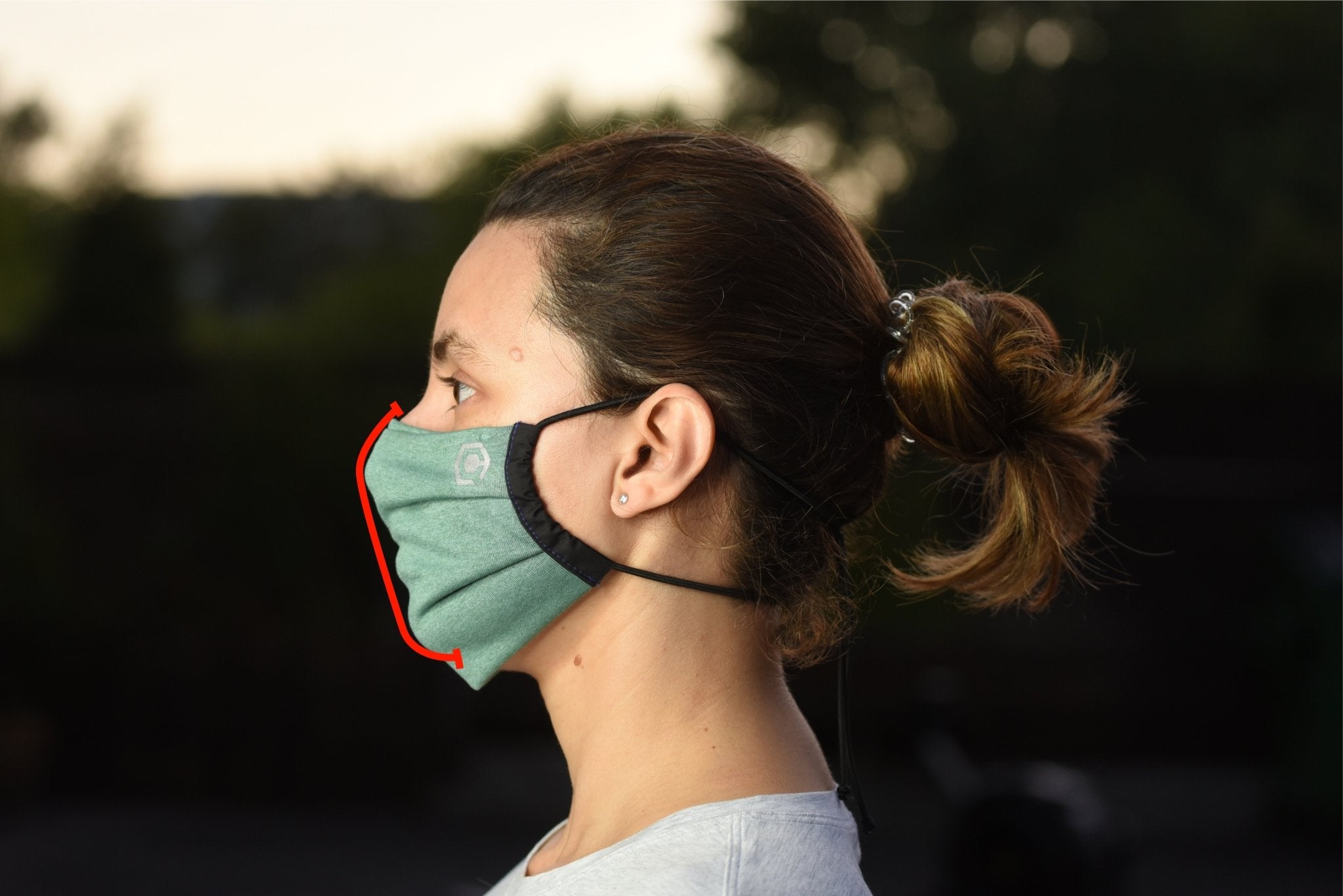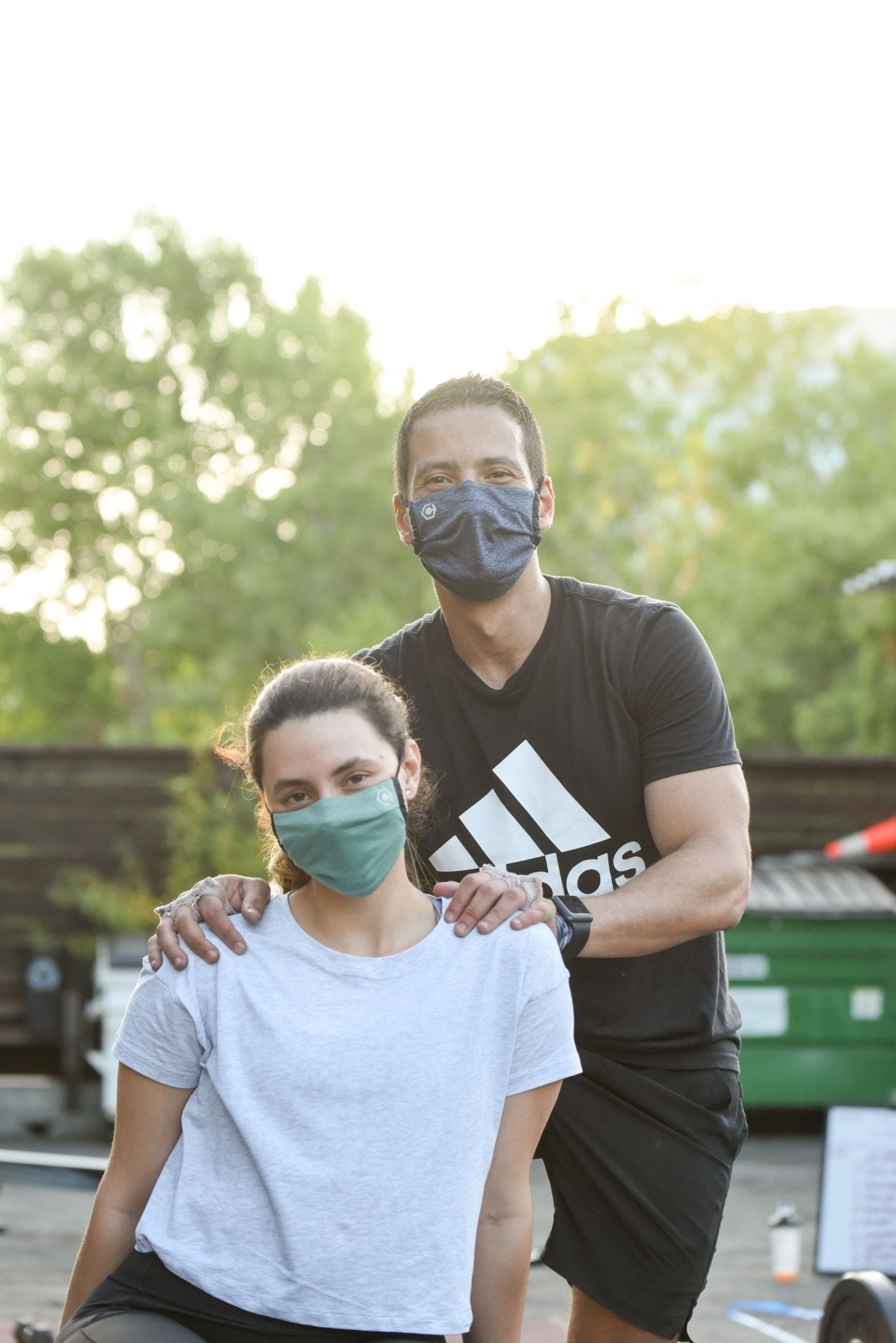
Top 5 Mask Benefits
1. Masks protect other people
The primary way the coronavirus spreads is from person to person by respiratory droplets produced when an infected person coughs, sneezes or talks. Face masks, however, can block these droplets. They act as a barrier to keep virus-containing particles from escaping an infected individual and landing on another person, explains Ron Waldman, M.D., professor of global health at the George Washington University (GWU) Milken Institute School of Public Health.
2. You may not realize you are contagious
It used to be that masks were recommended only for people who knew they had COVID-19, as a way to protect others around them. When it became apparent, however, that the virus can be transmitted by people before they start showing symptoms (pre-symptomatic) and by people who never develop symptoms (asymptomatic), the Centers for Disease Control and Prevention (CDC) broadened its guidelines, urging everyone to wear a cloth face covering in public.
Some studies, including a paper recently published in the journal Nature, have found that over 40 percent of people with coronavirus infections never develop symptoms of COVID-19. This makes it extremely difficult to detect who is a potential transmitter of virus, Waldman says.
That is why wearing a mask, even if you believe you are healthy, is recommended both by the CDC and the World Health Organization (WHO). It's one way to help prevent unknowingly spreading the virus to others, especially those who are more likely to become severely ill if infected by the coronavirus.
"It's a sense of social responsibility,” says Neysa Ernst, R.N., a nurse manager of the Biocontainment Unit at the Johns Hopkins Hospital in Baltimore. You wear a mask because you “want to protect society,” she adds.
3. Masks can protect you, as well
A few studies suggest cloth face masks offer some protection for the wearer, but the protective perks are most obvious when everyone covers the mouth and nose. Think of it as a collective benefit: The more people who block the transmission of the virus with face coverings, the less virus there is circulating in the community. This reduces everyone's risk for infection.
"If that chain is cut anywhere, then the virus is no longer able to propagate or to be transmitted,” Waldman says. “So whether you intervene on the side of the transmitter or the side of the receiver of viral transmission, if you can block the passage of the virus on either end of that chain, then everyone benefits from that.”
A few studies highlight the power of widespread community use of face coverings. A report published in Health Affairs, for example, found that states with face mask mandates had a greater decline in daily COVID-19 growth rates compared with states that did not issue mandates. The authors estimate that these mask policies may have prevented as many as 450,000 coronavirus cases in the U.S.
4. Masks may help the economy recover
Masks could offer an economic boon, as well. A report released by investment firm Goldman Sachs found that a national face mask mandate could serve as a substitute for lockdowns “that would otherwise subtract nearly 5 percent from GDP [gross domestic product].”
Recent spikes in coronavirus cases have caused some U.S. communities to pause or roll back reopening plans and “have raised fears that we may need to go back to the lockdowns that we saw back in March and April,” Jan Hatzius, head of Goldman Sachs Research and the firm's chief economist, explained in a video briefing on the report. “We know that's very economically damaging.”
Lockdowns at the start of the outbreak brought the U.S. economy to a halt; more than 44 million Americans have filed for unemployment benefits since mid-March. The widespread use of face masks, however, could significantly slow the growth rate of virus cases, which top infectious disease expert Anthony Fauci, M.D., said could hit 100,000 per day if outbreaks are not controlled. And slowing the rate of new cases would “reduce the need for what otherwise would be a significant hit to the economy,” Hatzius said.
5. There are few alternatives
In the absence of a vaccine and more effective drug therapies to treat people who are sick with COVID-19, the preventive measures of handwashing, physical distancing and mask wearing are “the three things that I do know that work” when it comes to fighting the coronavirus, Johns Hopkins’ Ernst says. What's more, these are low-cost strategies that are relatively simple to implement.
"The effort is minimal compared to the benefit. It's the cheapest, easiest intervention for the effect that it provides, for the degree of protection that it provides,” GWU's Waldman says. “Just staying 6 feet apart from other people, frequent handwashing and wearing a face covering in public, especially when social distancing is not possible or difficult — if people did those three things, we wouldn't be where we are today.”



